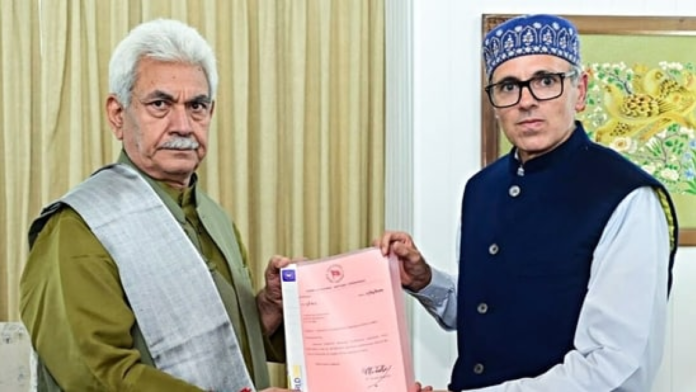In a significant political development, the President’s rule in Jammu and Kashmir was officially revoked on Sunday, paving the way for the formation of a new government in the union territory. The revocation marks the return of an elected government after years of central administration, following the 2019 reorganization of the erstwhile state.
A gazette notification issued by the Union Home Ministry confirmed the withdrawal of central rule, which had been in place since October 31, 2019. The notification read, “In exercise of the powers conferred by Section 73 of the Jammu and Kashmir Reorganisation Act, 2019 (34 of 2019) read with Articles 239 and 239A of the Constitution of India, the order dated the 31st October, 2019, in relation to the union territory of Jammu and Kashmir shall stand revoked immediately before the appointment of the chief minister under Section 54 of the Jammu and Kashmir Reorganisation Act, 2019.”
This development comes after the National Conference-Congress alliance emerged victorious in the recently concluded Jammu and Kashmir Assembly elections. Omar Abdullah, the vice president of the Jammu and Kashmir National Conference (JKNC), is set to become the next chief minister. He has been elected as the leader of the alliance and met with Lieutenant Governor Manoj Sinha at Raj Bhawan in Srinagar to stake his claim for government formation.
This marks a significant shift in the political landscape of the region, which has been under central rule since 2017, following the resignation of then-Chief Minister Mehbooba Mufti. The 2019 Jammu and Kashmir Reorganisation Act, which bifurcated the state into the two union territories of Jammu and Kashmir, and Ladakh, also saw the abrogation of Article 370, which had accorded special status to the region.
The return of an elected government under Omar Abdullah is expected to bring new political dynamics and discussions surrounding the restoration of full statehood to Jammu and Kashmir, which has been a key point of contention since the reorganization.
As the new government takes shape, all eyes will be on its priorities, particularly in terms of addressing local concerns and navigating the complex political environment of the region.
